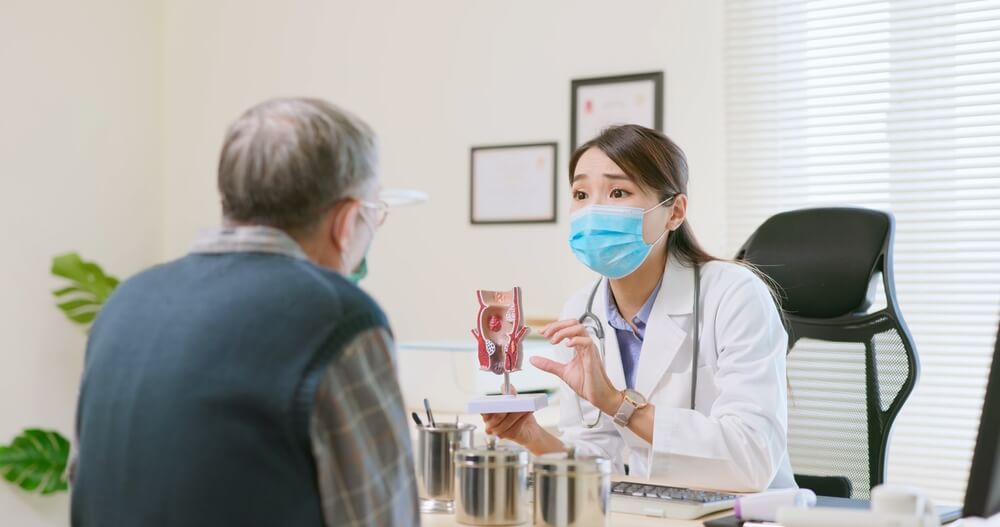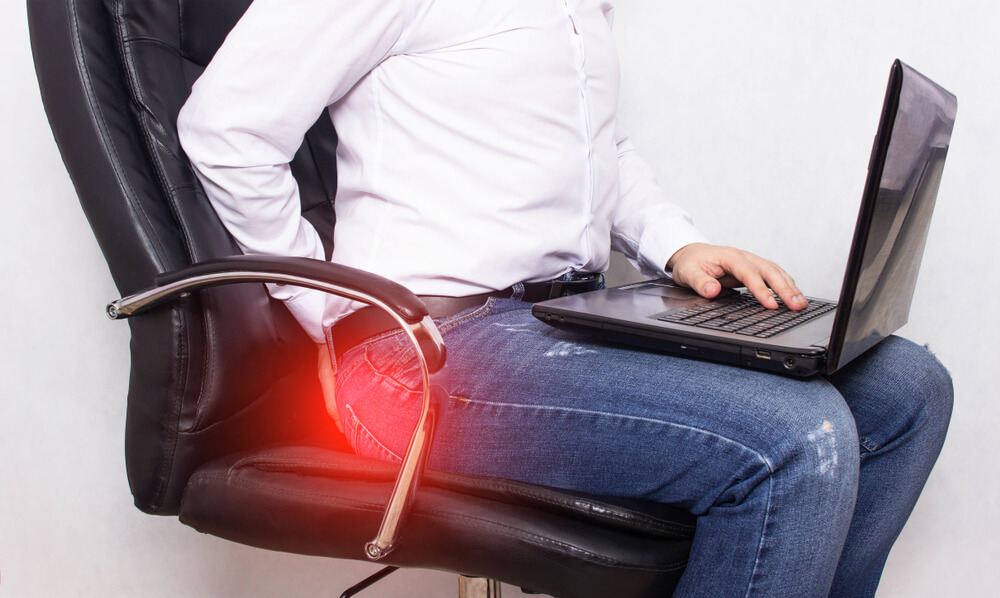Hemorrhoids, though often a source of discomfort and embarrassment, are a common medical issue that affects countless individuals. While they are treatable and manageable, some people choose to ignore their symptoms or delay seeking medical attention. Unfortunately, neglecting hemorrhoids can lead to a range of complications and worsening symptoms.
In this comprehensive guide, we at Advanced Surgical Physicians explore what happens if you don’t treat hemorrhoids and why it’s essential to address this condition promptly. And, if you decide to opt for hemorrhoid treatment in Palm Beach County after reading this article, feel free to reach out to our experts.
Understanding Hemorrhoids

Hemorrhoids, also known as piles, are swollen blood vessels located around the rectum or in the anus. They can be classified into two main types:
Internal Hemorrhoids
These occur inside the rectum, often painless, and may not be visible.
Internal hemorrhoids are a common condition that affects a significant portion of the population at some point in their lives. While they often remain hidden from view, these swollen blood vessels inside the rectum can lead to discomfort and, in some cases, complications. Understanding internal hemorrhoids is crucial for proper management and seeking timely medical attention when necessary.
Location and Visibility
Internal hemorrhoids, as the name suggests, are situated within the rectum, which is the last part of the large intestine. Unlike external hemorrhoids, which develop under the skin around the anus and are typically visible, internal hemorrhoids remain concealed from sight. This internal location is one reason why they are often painless, at least in the early stages.
Gradation of Severity
Internal hemorrhoids can be categorized into four grades based on their severity:
Grade I (First-Degree): Hemorrhoids that bleed but do not prolapse (protrude) or fall out of the rectum.
- Grade II (Second Degree): Hemorrhoids that prolapse during a bowel movement and retract spontaneously (go back inside) afterward.
- Grade III (Third Degree): Hemorrhoids that prolapse during a bowel movement but require manual (with your fingers) repositioning.
- Grade IV (Fourth Degree): Hemorrhoids that are always prolapsed.
External Hemorrhoids
These form under the skin around the anus and can be painful and uncomfortable. They may be visible as lumps or bulges.
External hemorrhoids are a painful and uncomfortable condition that many people face at some point in their lives. These swollen blood vessels form under the skin around the anus and are often visible as lumps or bulges. Understanding external hemorrhoids is crucial for effective management and prompt medical attention when necessary.
Location and Visibility
External hemorrhoids, as the name suggests, are situated outside the anal opening, under the skin of the perianal area. Unlike internal hemorrhoids, which are concealed within the rectum, external hemorrhoids are visible, making them easier to diagnose. They often appear as tender lumps or bulges that can be felt or seen.
Common Symptoms
External hemorrhoids can cause a range of symptoms, which may vary in severity. These symptoms include:
- Pain and Discomfort: One of the defining characteristics of external hemorrhoids is pain. These swollen blood vessels can become irritated, inflamed, and painful, particularly when sitting or during bowel movements. The discomfort is often described as aching, burning, or sharp in nature.
- Itching: Itchiness in the perianal area is a common complaint associated with external hemorrhoids. The irritation and swelling of the blood vessels can lead to persistent itching, which can further exacerbate discomfort.
- Swelling and Sensation of Fullness: External hemorrhoids may lead to visible swelling or a sensation of fullness in the perianal area. The lumps or bulges under the skin can be tender to the touch.
- Bleeding: While external hemorrhoids are more commonly associated with pain and discomfort than bleeding, it is possible for them to bleed, especially when irritated or during bowel movements.
Hemorrhoids can result from various factors, including straining during bowel movements, chronic constipation or diarrhea, obesity, pregnancy, and aging. Symptoms of hemorrhoids typically include:
What Happens if Hemorrhoids Go Untreated
Choosing to ignore or delay the treatment of hemorrhoids can lead to several complications and worsening symptoms. Let’s delve into what can happen when hemorrhoids are left untreated:
Increased Pain and Discomfort
Initially, hemorrhoids may cause mild discomfort and itching. However, regarding hemorrhoids’ long-term effects, as they progress, they can become more painful. External hemorrhoids, in particular, can be exquisitely painful, making sitting, walking, and even daily activities challenging.
Continuous Bleeding
Hemorrhoids often bleed during bowel movements. If left untreated, the bleeding can become more frequent and severe. Excessive bleeding can lead to anemia, a condition characterized by a lack of healthy red blood cells, which transport oxygen to the body’s tissues. Anemia can cause fatigue, weakness, and other health issues.
Thrombosed Hemorrhoids
In some cases, blood clots may form within external hemorrhoids, leading to thrombosed hemorrhoids. These clots can cause severe pain and swelling. Prompt medical intervention is usually necessary to alleviate these symptoms.
Anal Fissures
Chronic irritation and trauma from untreated hemorrhoids can lead to the development of anal fissures—painful tears in the lining of the anus. Anal fissures cause additional discomfort and can result in bleeding during bowel movements.
Prolapsed Hemorrhoids
Living with hemorrhoids for years may cause prolapse, meaning they extend outside the anal opening. This can cause considerable pain and discomfort and may require more invasive treatments.
Increased Risk of Infection
Living with hemorrhoids for years may also raise the risk of infection as they can develop into open sores or ulcers. These can become infected, leading to more severe complications and the need for antibiotics.
Formation of Skin Tags
Prolonged irritation from untreated hemorrhoids can lead to the development of small, skin-colored growths around the anus known as skin tags. While these are not typically painful, they can be a source of discomfort and concern.
Psychological Distress
Living with untreated hemorrhoids can cause emotional stress, anxiety, and depression due to persistent pain, discomfort, and the embarrassment often associated with this condition.
Impaired Quality of Life
The combined effects of pain, discomfort, and worsening symptoms can significantly impact an individual’s overall quality of life. It can limit their ability to engage in daily activities and lead to social withdrawal.
Preventing Hemorrhoid Complications
Addressing hemorrhoids promptly is crucial to prevent these complications. To manage and treat hemorrhoids effectively, consider the following:
- Dietary Changes: Consume a high-fiber diet to soften stools and make bowel movements more comfortable. Staying well-hydrated is also essential.
- Lifestyle Modifications: Avoid straining during bowel movements. Take your time and ensure you have enough time to complete a bowel movement without rushing.
- Topical Treatments: Over-the-counter creams or ointments can help alleviate itching and discomfort. However, consult with a healthcare provider before using any medications.
- Sitz Baths: Soaking in warm water for 15-20 minutes can provide relief from discomfort and reduce swelling. Repeat this several times a day.
- Medical Procedures: In cases where conservative measures do not provide relief, medical procedures such as rubber band ligation, sclerotherapy, or surgical removal may be necessary. Consult a healthcare provider to determine the most appropriate treatment.
Seeking Medical Attention

Ignoring hemorrhoids is not a prudent course of action. While some may feel embarrassed or hesitant to discuss their symptoms, healthcare professionals are experienced in diagnosing and treating this common condition. Seeking medical attention when symptoms arise is the best way to prevent complications and discomfort.
In Conclusion
Hemorrhoids are a common and treatable condition. Ignoring hemorrhoids or delaying treatment can lead to complications, increased discomfort, and psychological distress. If you are experiencing symptoms of hemorrhoids, it is essential to consult a healthcare provider promptly. Early intervention and appropriate management can help you find relief and improve your quality of life.
That said, if you have any questions or concerns regarding this topic, feel free to schedule an appointment with us.



